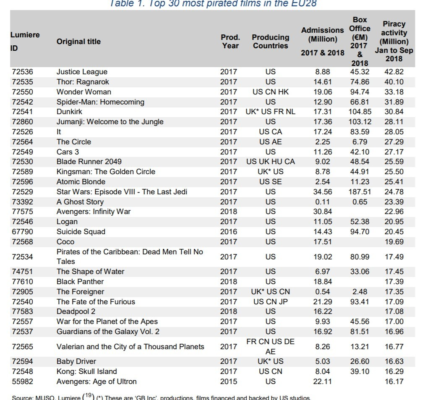The proliferation of Sci-Hub and similar shadow libraries underscores the ongoing challenges faced by academic publishers in protecting their copyrighted content and maintaining sustainable business models. Despite efforts to shut down or restrict access to these platforms, they continue to attract a significant number of users, including researchers seeking access to scholarly articles behind paywalls.
A recent study conducted among thousands of researchers highlights the widespread use of pirate libraries as a means of bypassing paywalls and accessing academic literature. The study indicates that the primary motivation for utilizing these platforms is the lack of access to subscription-based journals, which are often prohibitively expensive for individuals or institutions.

However, the study also reveals a concerning trend: many researchers find shadow libraries easier to use than legal alternatives. This suggests that the accessibility and user experience provided by pirate libraries may be superior to those offered by legitimate channels, further incentivizing their use among the academic community.
This presents a significant challenge for academic publishers, as it indicates that simply restricting access to pirate libraries may not effectively address the underlying issues driving their popularity. Instead, publishers may need to focus on improving the accessibility, affordability, and user experience of their own platforms to compete effectively with shadow libraries.
Furthermore, addressing the root causes of piracy, such as exorbitant subscription fees and restrictive access models, may require industry-wide collaboration and innovative solutions. By working together to develop sustainable and user-friendly alternatives to pirate libraries, publishers can better serve the needs of researchers while protecting the integrity of scholarly publishing.
The widespread use of Sci-Hub and other pirate libraries among researchers highlights the ongoing challenges faced by academic publishers in maintaining control over access to scholarly content. Despite legal efforts to shut down these platforms, they continue to attract a significant user base, with many academics relying on them as a primary source for accessing research papers behind paywalls.
The recent study published in the journal Information Development sheds light on the prevalence of Sci-Hub usage among researchers and the motivations behind it. While finding an open-access version of a paper and requesting copies from colleagues are common practices, a significant portion of respondents reported using pirate sites as a means of bypassing paywalls.
The study reveals that more than half of the surveyed researchers have used pirate sites to access research papers, with the primary motivation being to circumvent access restrictions imposed by publishers. Additionally, a notable percentage of respondents cited the ease of use offered by pirate libraries compared to legal alternatives, as well as frustration with publishers’ profit-driven practices, as reasons for using these platforms.
These findings underscore the need for academic publishers to address the underlying issues driving researchers to pirate libraries, such as restrictive access models and exorbitant subscription fees. By improving the accessibility, affordability, and user experience of their platforms, publishers can better meet the needs of the academic community and mitigate the appeal of pirate sites. Additionally, fostering dialogue and collaboration between publishers, researchers, and institutions may help identify innovative solutions to ensure the widespread dissemination of scholarly research while respecting copyright protections.

The study’s findings indicate that the use of shadow libraries, such as Sci-Hub, is more prevalent among younger researchers and those affiliated with less wealthy institutions. This suggests that the reliance on pirate sites is not diminishing and may become increasingly ingrained in academic practices, particularly among the next generation of scholars.
The researchers suggest that younger academics may view pirate libraries as a natural part of their information retrieval toolkit, while older scholars may be more hesitant to embrace these platforms. This generational divide could have significant implications for scholarly information access and attitudes toward piracy in the future.
Interestingly, the study also highlights that a substantial portion of researchers who do not use pirate sites cite ethical concerns or lack of awareness as reasons for abstaining. This suggests that there is still a significant portion of the academic community that values ethical conduct and adheres to legal means of accessing research papers.
Overall, the findings underscore the ongoing popularity of Sci-Hub and similar platforms among researchers, particularly when legal options to bypass paywalls are limited. As academic publishers continue to grapple with issues of access and affordability, it will be important to address the underlying reasons driving scholars to pirate libraries and explore alternative solutions to ensure equitable access to scholarly knowledge.






